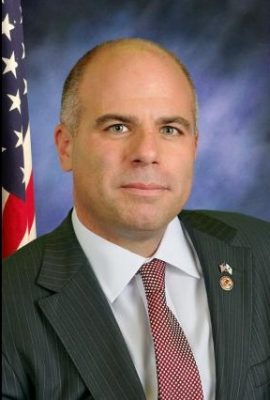The trial of a former state senator and one-time gubernatorial candidate accused of improperly spending thousands of campaign dollars for personal use didn’t start as planned this morning in federal court in Springfield.
U.S. Central District Judge Colleen Lawless was set to preside over a bench trial at 9AM this morning for William “Sam” McCann, who has been charged with wire fraud, money laundering, and tax evasion. According to online court records from a status conference at 1:30PM today, McCann’s stand-by counsel Jason Vincent that he had received an email from Vicki McCann indicating McCann had been admitted to an area hospital and would be having an undisclosed medical procedure completed. Vincent was directed by the court to respond to the email asking for additional information on McCann’s medical condition, including the exact hospital he was having the procedure at, and the name of treating doctors. Vincent and the Federal Probation Office later indicated that they had been in contact with Vicki McCann and that more diagnostic testing would be done today.
The Government’s counsel then issued a subpoena to the hospital and has been in contact with the hospitals attorney who has indicated they will comply with the subpoena and answer questions surrounding McCann’s health. A second status conference before Judge Lawless was set for 4PM today.
McCann was indicted in February 2021 on charges that he misused over $200,000 in campaign funds over five years from May 2015 to June 2020. Prosecutors say the funds were used to pay for a wide range of personal items including a personal vehicle, a motor home, and a family vacation as well as paying for personal loans and allegedly falsifying expenditure reports to the Illinois State Board of Elections.
McCann is representing himself pro se after he fired his 3rd federal court-appointed defender in November. Springfield attorney Jason Vincent will serve as stand-by counsel as McCann is not a lawyer. McCann was denied a request in January to further delay the trial to go over evidence collected by federal investigators over a two-year period.




